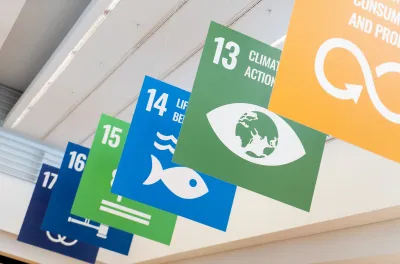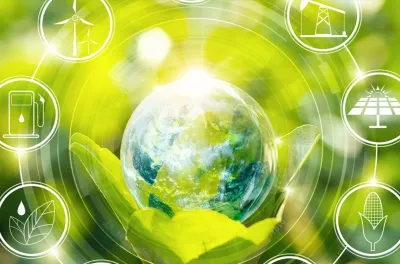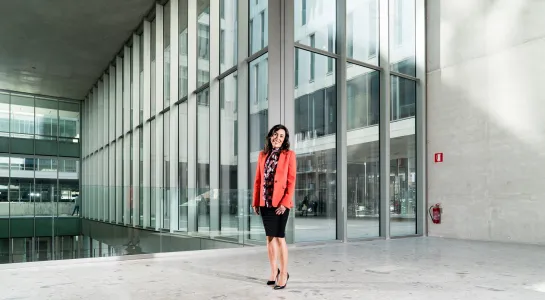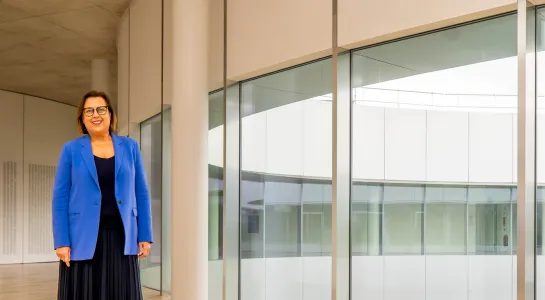
The Green Transition for Widespread Change
Records are meant to be broken, but when it comes to climate, they are likely to be short-lived. According to Copernicus, the European information service that observes climate change, it is "very likely" that 2024 will be the hottest year ever – breaking the record set only a year ago after decades of monitoring. Scientists reveal that, from January to July, global temperatures were 0.70 degrees Celsius higher than the 1991-2020 average, and 0.27 degrees higher than those recorded in the same months in 2023. It is an anomaly for which it is “increasingly likely that 2024 will be the hottest year on record”, unless there is a sudden and unexpected drop in temperatures in the latter part of the year.
“It is a trend that we have been observing for some time,” Valentina Bosetti, Professor of Environmental and Climate Change Economics at Bocconi University, points out unsurprised. She explains further: “This year we felt the effect of El Niño, a meteorological phenomenon that – every two to seven years – impacts the climate primarily on the American continent and has a domino effect also on the European one, influencing temperatures and leading to more extreme rainfall. The data from Copernicus confirms that September 2023 through August 2024 was the hottest year ever recorded for the planet.” To interrupt the trend, Bosetti highlights that “long-term policies and investments are needed to harness the synergies between mitigation and adaptation as much as possible”, underlining the need to accelerate decarbonization and be resilient towards these changes in the climate that we are bound to witness anyway.
“Investments in infrastructure that are capable of reducing energy demand or bringing clean energy to a new generation, while – at the same time – taking into account the urgency to protect ourselves from the negative effects of climate change, will bring about greater benefits. Economic resources, she assures, are not the bottleneck; many clean technologies are economically convenient and the private sector is mobilizing.”
“Making the permit process more efficient,” says the professor, “along with a system of clear, ethical and long-term policies, is vital.” Looking outside Europe, trade will have a greater impact on environmental policies in the coming years because “what other countries do for the environment – their national climate policy choices – will be increasingly affected by the presence of environmental tariffs. One clear example is the Carbon Border Adjustment Mechanism, a European Union proposal aimed at leveling production costs by imposing tariffs on imports from countries with loose climate policies.”
Bosetti observes, that in an effort to also bring forward the decisions of competitor-nations, “in Europe it is necessary to always keep mitigation in mind and consider the transition as a possibility for change that goes beyond climate change.” “On the production side, it includes reducing the raw materials used, as well as rethinking the supply chain to minimize pollutants throughout. On the demand side, it includes helping people reduce their own demand for raw materials and energy as much as possible.” The professor calls attention to the green transition, stating that “it is an opportunity to realize that our economic system is integrated and dependent on nature, and must set as its objective the collective wellbeing of not only this generation, but also that of future ones.”
Those who develop public policies must be able to make breakthrough decisions without leaving people feeling defeated. “We should try to enact measures that do not generate costs with which only certain categories of people are burdened, instead trying to distribute them in a more widespread and progressive way throughout all of society,” explains Italo Colantone, Associate Professor in the Department of Social and Political Sciences at Bocconi University. It is not an easy task for those who want to quickly achieve ambitious emission reduction targets. “Milan’s Area B offers interesting insights into how green policies can generate strong social and political opposition,” illustrates the professor, using the example of the decision made by the municipality of Milan to create a large, limited traffic zone within the city to prevent circulation of the most polluting cars, therefore those with more miles. “A survey of Milan residents found that, among those who had to change their cars due to the restriction, more were likely to vote Lega – the party that had most strongly opposed the measure. A classic example of a regressive environmental policy is that of Area B, affecting the less fortunate the most: those with older, more polluting cars often cannot afford to buy a newer one. The carbon tax is another example of a regressive measure: it uniformly increases the cost of fuel for everyone, but tends to have a greater impact on those with less disposable income.”
So, what is there to do? Firstly, Colantone suggests, “effective and easily accessible compensatory measures should be provided, when – for example – one is required to change their car. The communication strategy then needs to be revamped, so that climate-friendly measures are better understood and more likely to be accepted. It is a choice that would be very easy to put into practice, at no cost. Besides environmental sustainability, it is necessary to evaluate the political sustainability of the actions that are implemented. When environmental measures result in significant groups of underdogs, the next elections may head in the favor of political parties that oppose such policies, which will therefore not be sustainable over time.”
The green transition, Colantone suggests, should be “as just and sustainable as possible”. An interesting aspect has emerged from a new paper on which the same professor is working: “Those with a professional interest in developing the green economy are more inclined to support green policies – not only high-level engineers or technicians, but also those in roles with less experience.” Moreover, even the workers potentially most disadvantaged by environmental policies – highlights Colantone – “tend to oppose them less in contexts where the positive effects of the green transition are more visible, such as – for example – in the regions that have a strong disposition for clean energy production, because the green transition generates widespread benefits." From a communicative perspective, this is the most important lesson for those who are tasked with convincing others to accept even the most difficult decisions: “It is important to emphasize the opportunities within everyone’s reach as a result from the green transition, underscoring its inclusive aspects as much as possible.”






